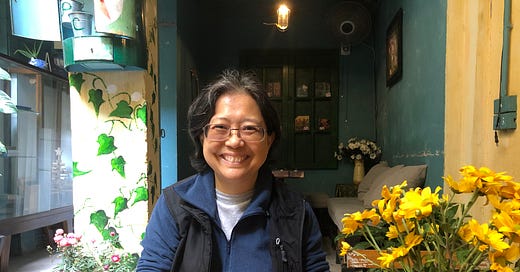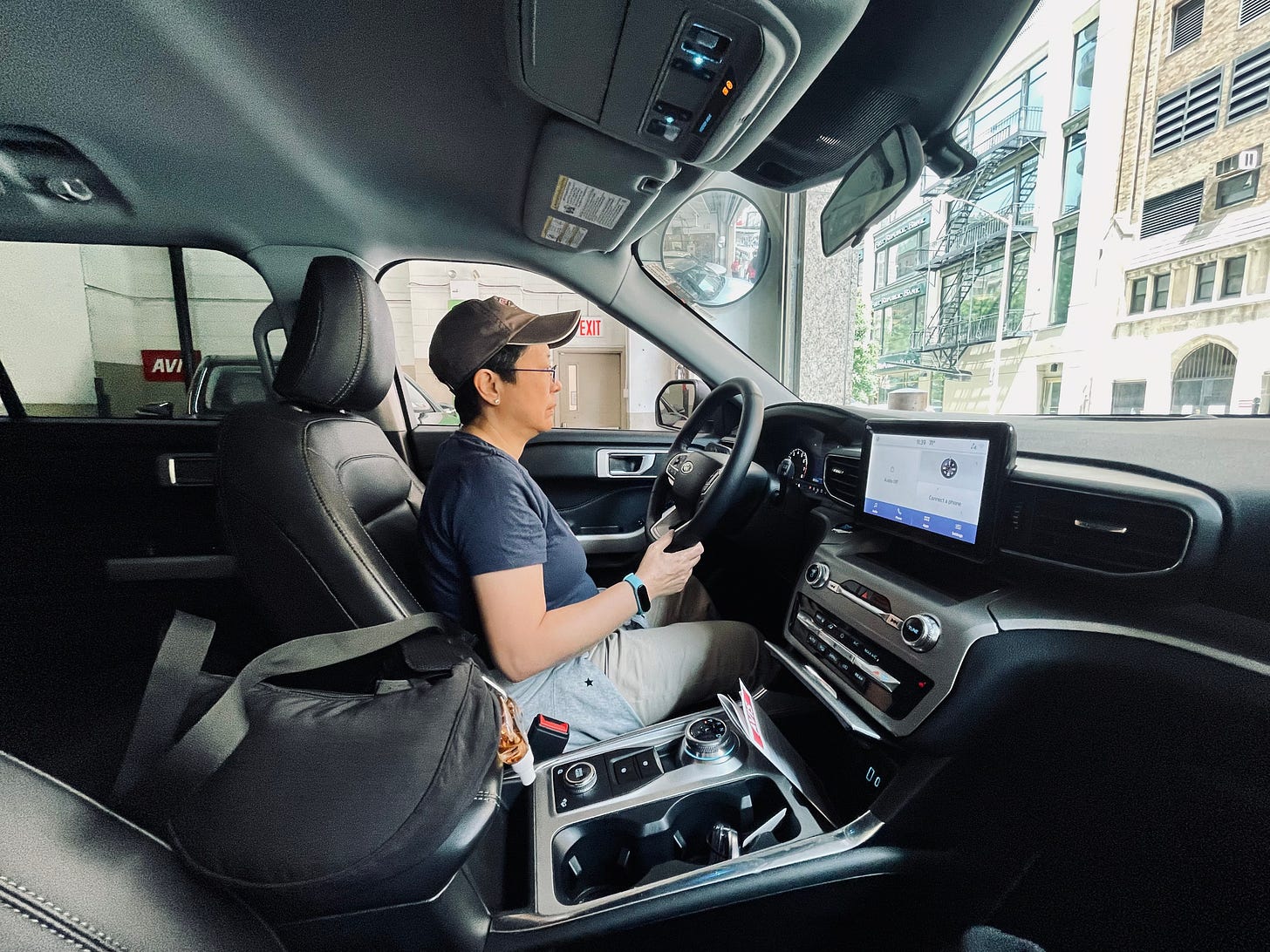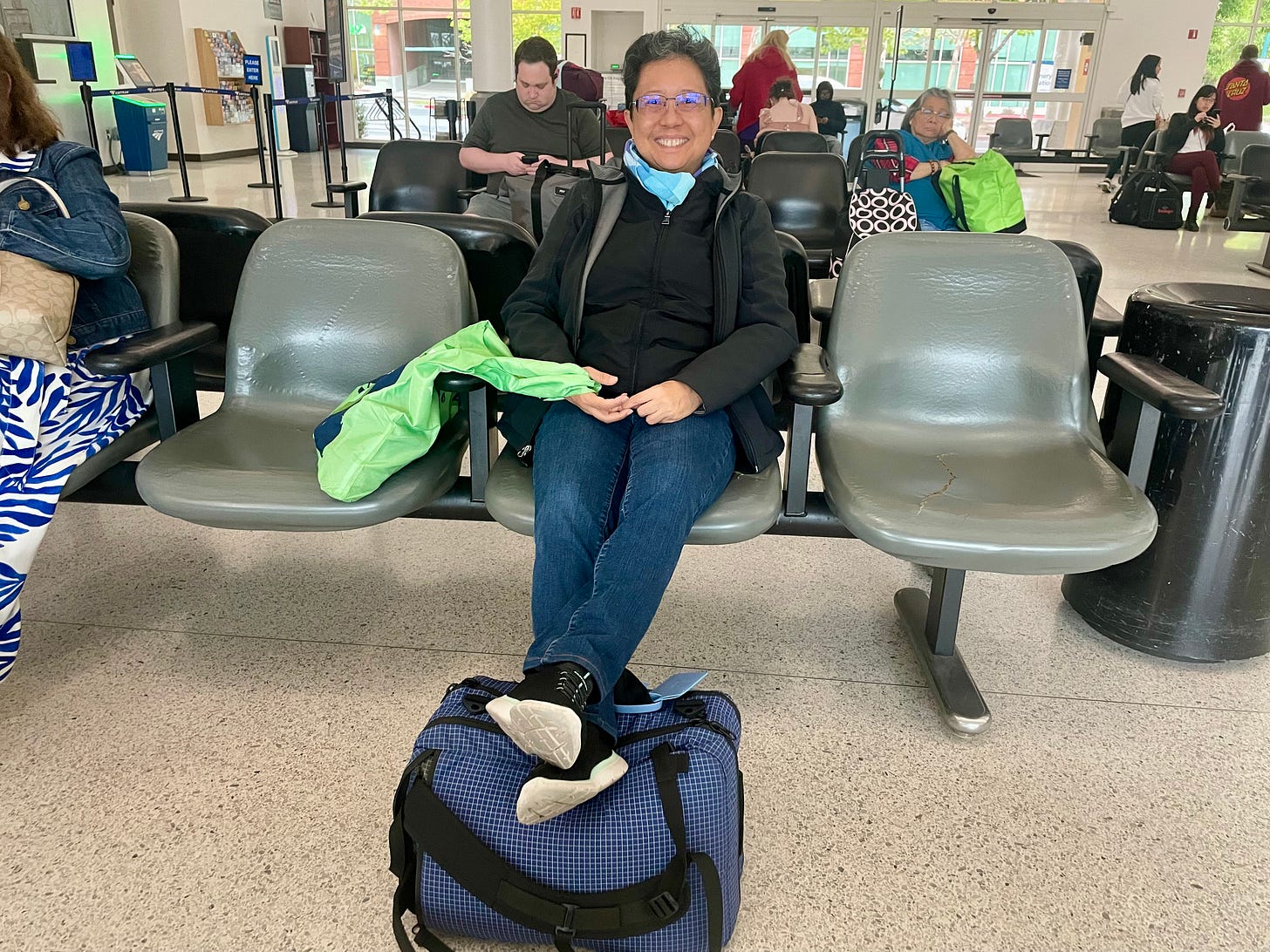It has been 40 days since my sister, Ate Marica, was admitted to the hospital. She was home for only one week in December before being confined again. What started as pain on the right side of her pelvis in late September was diagnosed with an aggressive form of cancer. The swift spread felt like a relentless tsunami, engulfing us—family, friends, and doctors—barely leaving any room to breathe.
As the days passed, even small disruptions added to the weight of our situation. On New Year’s Day, for instance, the overnight substitute caregiver called in sick. The agency already had a replacement, but she had to cancel at the last minute when her mother was rushed to the ER. Perl, our main contact, couldn’t get anyone else to fill in. I volunteered to stay with her, seeing it as a gift of time—what could be more meaningful than spending the first day of 2025 by Ate Marica’s side?
After dinner, we sat in silence, holding hands, shaking our heads, and unable to find the words.
“Cancer,” she said, uttering the word for the first time since I’d been with her. She was still coming to terms with the reality.
Tears welled up in my eyes. I nodded, squeezing her hands tightly.
“It sucks,” was all I could manage to say.
Later that evening, as I tried to get some sleep, the Tagalog word malasakit kept surfacing in my mind.
There’s no exact English equivalent for the word malasakit. It embodies an untranslatable concept that combines empathy with action, demonstrating care that goes beyond duty.
Malasakit embodies the Filipino belief in kapwa (shared identity), emphasizing that our well-being is interconnected. It fosters a culture of kindness, generosity, and solidarity, strengthening communities and relationships. At its core, malasakit serves as a reminder that humanity thrives when people care for one another.
Malasakit in action looks like this:
It’s Nurse Kristi, who worked the overnight shift on New Year’s Day, went above and beyond assisting me with my sister’s toileting and hygiene with care and kindness.
It’s Gang, the hospital aide who brightened the holidays with her festive reindeer headband. She carefully lifted Ate Marica’s hospital bed to prevent the wheels from catching on the elevator gaps, ensuring a smooth ride to the Radiology wing and sparing her any discomfort.
It’s Nurse Don, who took the initiative to secure time slots, ensuring Ate Marica wouldn’t have to wait long and allowing us to plan our days to be with her during treatment. He also arranged for a hospital aide to retrieve a large bouquet of lilies and mums that had been delivered to the basement and bring it to her room.
It’s the Radiology team, consisting of nurse aides and technicians, gently and swiftly sliding the wedge inserts into place to minimize the pain in her right leg as they transferred her to the ramp of the tomography machine.
It’s Cheryl and Jellen, her steadfast caregivers, whose tender care and attentiveness brought her peace of mind. They anticipated her needs and closely observed her, especially as her health condition became more complicated. Their smile, humor, and gentle touch lifted her spirits, while their constant presence eased her pain and offered comfort.
It’s the security guard who instinctively placed his hand above the SUV doorway to protect my mother’s head as she got into the vehicle after a visit with my sister.
It’s Katrina, my second cousin—whom I barely know and haven’t seen in 30+ years except at childhood family reunions—coordinating the meal train from from our Kalaw cousins and ordering the food for my family since Ate Marica’s hospitalization.
It’s Tessa, one of my youngest sister’s best friends, who saved me from a meltdown by generously offering to cover the payment for our caregivers when I couldn’t access our funds.
It’s Martin and Anna who came to my rescue, offering me rides home from the hospital whenever I found myself in a bind.
It’s Mel and Tina delivering food at our home, hugging me when I cried, laughed with me to lighten the heaviness in my heart, reassured me that I had their support. They even arranged for a hairstylist to come to the house and cut Ate Marica’s hair, helping her feel human again.
It’s my friend Kina, who took the time to visit me in the hospital, sitting with me as I recounted the events of Ate Marica’s hospitalization. She listened with understanding, shared in my laughter, and allowed brief moments of joy to pierce through the heaviness of the situation. Her warm hugs brought reassurance and comfort. Kina and I only reconnected last year, when she helped me navigate the options for oxygen tanks for my father and where to source them. It’s hard to believe that the last time we saw each other was 35 years ago, at our college graduation.
It’s our friend Mariza who maintained a cheerful demeanor that lifted Ate Marica’s spirits, even as she shared in our heartbreak. Her laughter and sense of normal conversation provided a brief but welcome reprieve from the endless cycle of medical procedures, medications, and visits from attending physicians. She also gifted me a new rosary after reading my earlier post about my old one unraveling.
It’s my brother GT and my sister Malyn, weary after a 14-hour flight from Europe that evening, surprised Ate Marica, showered her with goodies, and kept her company so she wouldn’t be alone on Christmas Eve.
I’ve always believed that the kindness you give to others finds its way back to you. The overwhelming outpour of malasakit and support is a reflection of how Ate Marica treated others with the same care. I collected video messages from family and friends, and some shared heartfelt stories about the small acts of malasakit that touched their lives.
She helped Mike buy his very first sweater when he moved to Boston in the mid-1990s. Noticing that his clothing wasn’t suited for the approaching winter, she reassured him that he could find something warm without overspending, especially since he was on a tight budget. She picked him up from his apartment, and together they found a $20 warm and cozy sweater on the Eddie Bauer sale rack.
Peachy fondly reminisced about a time she craved lobster but didn’t know how to cook it. She bought one anyway and called Ate Marica, who, with her ever-kind heart, drove nearly an hour to help. Together, they gathered side dishes at Market Market and shared a backyard feast, the warmth of a Boston summer wrapping them in the memory of a meal made sweeter by friendship.
She tutored Enzo, Gigette’s son, when he struggled in 5th grade English. Patiently, she broke down the steps of writing an essay until something clicked for him. He successfully passed the class, and today, he’s in law school. Gigette has never forgotten that small act of malasakit that helped shape Enzo’s journey.
While she was recovering at home after surgery, Angela was thrilled to hear Sophie, Ana’s daughter, had been accepted for early admission to NYU. Despite her illness, which she kept from Ana, Angela had helped Sophie refine her application essay. The news made her day and filled her with pride.
Her friend Malou, a classmate from UP Physics, recalled how “Ate Macky” as they fondly called her, was their cheerleader, always clapping enthusiastically during presentations. She treated her classmates like younger siblings, as she was older than most of them.
When our driver Ralph had a nosebleed, Ate Marica, along with our two other house helpers, Les and Vie, took him to the emergency room. They stayed with him until he was treated and discharged at two in the morning. She also lent them jackets when reports of howling winds from an impending typhoon came in. Whenever they traveled to their home provinces, she always made sure to send a text message to check if they had arrived safely.
Ate Marica also played a pivotal role in our family. She helped my youngest sister, Malyn, raise her daughter, Marina, from birth through high school. Afterward, she stayed in Manila to care for our parents, manage their household, and handle most of the family's affairs.
She set up a monthly allowance for me while I was studying photography at Brooks Institute. She also bought T-shirts to support our fundraising efforts for a three-month documentary journey to West Africa. Years later, I found them tucked away in her cabinet. After graduation, she gave me a small fund to help kickstart my career, saying, “You don’t need to pay me back right away.” I did, when she later found herself in a financial bind.
Ate Marica’s journey has shown us that even the smallest acts of kindness can ripple outward, touching lives in ways we may never fully see. Even now, despite being weakened and hooked up to IVs, she makes it a point to thank her caregivers at the end of their shifts. She expresses gratitude to nurses, aides, and doctors alike, whether they are residents or fellows. She always asks for their names, once sharing with me that remembering someone's name is a meaningful way to show appreciation. Her malasakit continues to guide us, lifting us through this storm with a quiet strength that is uniquely hers.
Thank you for inviting me to join you every Sunday in your inbox. I am grateful and appreciative for spending a small part of your day with me. If you have the means to support Sundays with Stella, please consider becoming a paid subscriber. Those who contribute financially will ensure that this place of inspiration, creativity, and meaning remains free and open to all.
OTHER WAY TO SUPPORT SUNDAYS WITH STELLA
I've listened to your requests and created a support page on my website. Now you can contribute to 'Sundays with Stella' in any amount using your credit card, PayPal, or Venmo. Your generosity is truly appreciated!







Your gratitude is always the golden thread running through every day, Stella—good days & the hard ones. May it continue to weave in and out keeping you aware of the love that surrounds you all. 💛💛💛
Thank you for writing and sharing all this with us. I really don't feel as alone anymore with all the grief I have because of what happened in our family. That might sounds strange. I mean it very lovely. Unfortunately the loved ones are leaving this planet. It is just the way it is. And it is not easy at all. I am very grateful for what I have and I am very grateful for your Sundays with Stella. Thank you so much for sharing this!!!